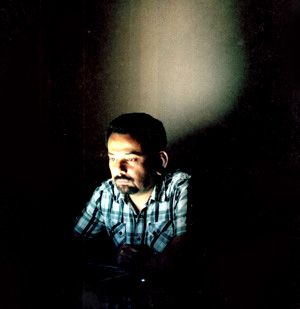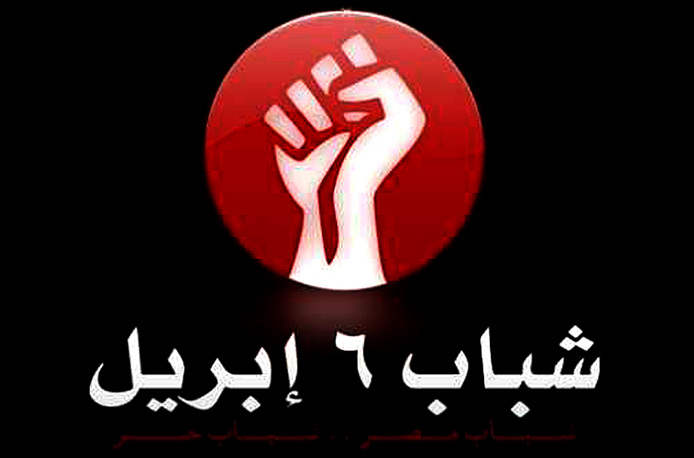We Hold These Tweets to be Self-Evident
I have a reputation as a troublemaker at work. That reputation is not so much earned by my interaction with my employers as it is the therapeutic interaction with my patients and their families. One of my core therapeutic ideals is that much of the non-medical symptoms of my patient’s issues (depression, anxiety ect.) is due to unsatisfactory life events, a life-structure, or their adaptations to life which, are endured rather than dealt with. Along the way they tell themselves all sorts of unhealthy things to aid in enduring the unsatisfactction such as “I deserve this pain” or “This is my fault” or “Life is like this for everyone; it’s hopeless.”
Part of the healing process is directly confronting these unsatisfactory elements, the negative things which they tell themselves and the reality of responsibility which we all have inside us. Let’s face it, that sucks. Humanity has an in-born desire to avoid responsibility, insert head firmly in sand and tell ourselves “that’s just the way it is.” Yet, we also have an in-born desire to achieve, to conquer and to feel at peace. What’s most difficult to face; we are all given some of the tools to make that happen. We just have to pick them up and try to change things.
This Blog is Bullsh*t
 Thus, I am a trouble maker. I believe the status-quo of my patients’ lives is part of the problem, and that if we don’t find ways that they can punch that status-quo in the face then they are doomed to repeat the process. I bring much of that attitude to this website. I am free to do so. I do not live in a Middle Eastern country like Tunisia (picture above), Egypt or Libya where Omar Shibliy Mahmoudi recently had to use coded messages on a dating site (picture left) to get around governmental internet restrictions and coordinate a protest. The internet has become a new guerilla battle ground and bloggers have become warriors; troublemakers much greater than I. This is most true in Egypt.
Thus, I am a trouble maker. I believe the status-quo of my patients’ lives is part of the problem, and that if we don’t find ways that they can punch that status-quo in the face then they are doomed to repeat the process. I bring much of that attitude to this website. I am free to do so. I do not live in a Middle Eastern country like Tunisia (picture above), Egypt or Libya where Omar Shibliy Mahmoudi recently had to use coded messages on a dating site (picture left) to get around governmental internet restrictions and coordinate a protest. The internet has become a new guerilla battle ground and bloggers have become warriors; troublemakers much greater than I. This is most true in Egypt.
Egypt’s The April 6 Youth Movement, on April 6, 2008, is widely regarded as the first time these Serbian internet tactics were used to great effect in the Middle East. But unlike Libya and Tunisia, it was not a single act. This fight has become a close, personal schoolyard scrap. The internet revolutionaries are known by their government. The progenitor of the April 6 movement did not hide in obscurity. In fact, he inspired others to build fox holes online with which to fight the tyrannical status-quo in their country. I am put to shame by these bloggers who are making real trouble with their websites and who’s lives are in genuine danger because of it.
The Egyptian government shut off the internet on January 27, 2011. This is because Dictator Hosni Mubarak didn’t like the troublemaking of those in his country who were using the internet to change the parts of their lives, and their countrymen’s lives, which they found unsatisfactory. Such as a 30 year State of Emergency in which most civil rights have been curtailed, near 50% unemployment, poverty and a dog-and-pony democracy which perpetuates this state to the point of hopelessness. The Egyptian people feel they have no voice, which is a common thing my patients tell themselves. However, a feeling of “voicelessness” eventually brings rage because a personal sense of power is inherent in humanity. One of the bloggers told Newsweek that the web is “our only media” and it was to that media that many Egyptian bloggers brought their outrage.
Then they were jailed. And they didn’t stop.
Then they were beaten. And they didn’t stop.
Then they were tortured. And they didn’t stop.
I do believe that this website helps people live their lives and bring a measure of change. I have received feedback which confirms it, and I’m ever grateful for it. I have never been beaten, jailed or tortured in bringing this message. Thus, I am humbled by trouble makers whose service and commitment is much more powerful than my own. No matter your politics, I believe that these men and women deserve recognition for their profound and positive trouble making and honor for the determination to stay at the keys despite extreme personal cost.
Blessed Be the Trouble Makers
Wael Abbas
Profession: Journalist, Blogger
Blog: http://misrdigital.blogspirit.com/
Youtubehttp://www.youtube.com/user/waelabbas
Twitter: http://twitter.com/waelabbas Channel:
Abbas was called the “Godfather of Egypt’s now vibrant blogosphere” by Newsweek because his blog (above) was one of the first to speak out in 2004. He focuses on bringing video of injustice, torture and violence by Egypt’s government to the eyes of the world. His work has helped get members of the Egyptian Police convicted of torture. This success and his continued efforts have netted him the constant threat of torture and harassment by the government. On February 4th he was “stopped at every checkpoint” and later arrested and detained. He has won the Egyptians Against Corruption Award 2005/2006, a journalism award by the International Center for Journalists in 2007 and the Human Rights Watch’s Hellman/Hammett Award in 2008. He was named one of the Most Influential People in the year 2006 by the BBC and Middle East Person of the Year 2007 by CNN.
Fathy Abou Hatab
Profession: Journalist, IslamOnline
Twitter: http://twitter.com/fmhatab
Facebookhttp://en-gb.facebook.com/Fathy.abouhatab:
The strike at IslamOnline, which coincided with the January protests “is not an issue of money,” Abu Hatab said, as he, his daughter, and his co-workers squatted in IslamOnline’s office to prevent governmental take over. “It’s a matter of editorial independence and media ethics, and we are not going to back down. They are trying to hijack IslamOnline, and we are resisting.”
The multilingual website began offering a “holistic vision of Islam” in 1997, including “guidance on political, family and social issues.” Non-Muslims and secular Muslims were accepted as staffers and the site “quickly gained global popularity as a source for theological answers to questions involving everything from homosexuality to Hamas.”
The ability to deliver IslamOnline’s holistic vision, which was counter to much of the “dull and dense” traditional fare, was due to a rare editorial independence which “came under threat last month when a new set of Qatar-based managers…shut down sections of the website devoted to culture and youth,” restricted journalists’ access to servers, and began mass firings.
Abu Hatab was the spokesperson of the strikers who may have already been replaced by scabs even as I write these words. I would call that an error. To further incense a man with the passion to declare that “They may own the offices and the URL, but they don’t own us,” will only make his voice louder and more far-reaching.
 Karim El-Beheiry
Karim El-Beheiry
Profession: Former Textile Worker, Blogger
Blog: http://www.egyworkers.blogspot.com/
El-Beheiry, 25, runs the Egyworkers blog (above). It is “dedicated to fighting for labor rights and for bloggers who have been detained by the Egyptian government” according to Cyberdissidents.org. The site uses a vast online gallery of pictures of all the labor strikes that have been held in Egypt to put political pressure on the government and keep global eyes on Egypt.
Some of these pictures reveal the bullets shot by Egyptian police at protesters in the Al Jeeza province. His blog has detailed “how the Egyptian police used violence and tear gas in order to disperse the 3000 protesters” of a decision to the confiscate of farming land from the people of the Al Jeeza province to build tourist attractions. The security forces broke into three homes and suffocated people in their houses with gas bombs.
El-Beheiry was arrested during the April 6 Youth Movement for “allegedly instigating a riot and damaging public property at Mahalla (Egypt’s largest textile factory).” He was held at Borg El-Arab where he was tortured, beaten, electric shocked and starved. He was released from jail on June 1, 2008.
“I wondered then what the term strike meant,” Karim El-Beheiry said about his actions three years ago. However, on his way out of the factory, he heard a fellow tell the press: “I don’t have enough money to satisfy the needs of my son.”
“I cried when I heard that and eventually decided to join the strike.” He told the LA Times.
His life behind bars proved more confirmation than correction. “Jail never changes ideas. Coercion and torture makes the person stronger. I love this country and I refuse to give up my rights,” El-Beheiry told the Times.
Shahinaz Abdel Salam
Profession: Telecommunications Engineer
Blog: http://wa7damasrya.blogspot.com/
Twitterhttp://twitter.com/Wa7damasrya:
“When you are a woman you have more restrictions, and when [women] grow up with that, they have [these] restrictions even inside. They don’t want to talk,” Shahinaz Abdel Salam, “one of Egypt’s best known bloggers” told Information, Communications and Technology. Salam found her voice more than six years ago, during the “onset of blogging’s popularity in Egypt [when] the majority of all Egyptian bloggers were female.” She became the online trouble maker known as “Wahda Masrya” (“Egyptian Woman” in Arabic) fight against the oppressive Egyptian status-quo. “I was really, really searching for like a gate, like a place where I can say what I want to say…and for people to read that and react with comments.”
Salam, according to Newsweek, has been “tweeting the protests exhaustively” since they began, and aside from the daily social ills of subservience and silence which Salam escapes through her laptop, she has met with the least amount of governmental hardship on this list.
Ahmad Maher
Profession: Civil Engineer, Activist
Facebook: http://www.facebook.com/pages/Ahmed-Maher/50769183701
Though Wael Abbas is considered the Godfather of Egypt’s blogosphere, he is more analogous to Ghandi. Therefore Ahmad Maher may be their cyber Rev. Dr. Martin Luther King, Jr. The April 6, 2008 protest which sparked the fire in Egypt’s youth (including Karim El-Beheiry above) was set by Maher on Facebook. In the days following April 6, Egypt’s internet blazed like never before. “Egyptian bloggers worked round the clock” said Global Voices, “telling the world about the workers’ revolt that shook their country, as thousands rioted at a textile mill in Al Mahalla. They were also among the first casualties of the unrest, which left some killed, scores injured and an undetermined number of activists, organizers and mere spectators behind bars.” Despite jail, that passion continues to this day. The New York Times said that Maher’s Facebook group (when it is not shut down by the government) features the “intense and heated discussions” of more than “70,000 predominantly young and educated members, most of whom had not been politically active before; their core concerns include free speech, nepotism in government and the country’s stagnant economy.”
most of whom had not been politically active before; their core concerns include free speech, nepotism in government and the country’s stagnant economy.”
Maher has suffered for his activism. He, like others of his group, have been “detained six weeks after their arrest…harassed, physically abused and later released by the police…” During one such detainment, according to Abbas’ blog, “State Security called [Maher] in for a ‘friendly’ coffee…when he didn’t go, State Security took him from his home in the middle of the night, beat him, and released him with the warning that they were ‘just pulling his ear’ this time, and that next time would be worse.” Pictures of the beating (right) were posted on Abbas’ blog under the title “The Newest Egyptian Method to Find Out Your Facebook’s Account Password.”
Maher remains resistant and vocal, despite the hardships, and was both active and detained by police during January’s protests.
My Daughter Likes Juice Boxes, Too
I was interested in the unrest in Egypt when the net was shut down. I posted some pithy words on Twitter and Facebook about it and that was that. Then I found a pictorial in Newsweek. The picture of Fathy Abou Hatab and his daughter prompted me to research further. There, trapped in a closed down office building, a journalist became an activist, but remained a father. My gut said that the shady governmental tactics around them left no safer place to have his daughter than by his side. Suddenly the work of a few bloggers became real and very personal to me.
Piecing all the blogs, twitter pages and articles together took time. In that time the ADHD addled eye of world media has already moved on. I boldly declare, and I humbly ask, that we bring it back to these brave bloggers for two reasons. First, because the fight will continue despite our attention. Second, because the torture by the government, the beatings, the threats, will occur more often when we look away. Check out their sites follow their twitter feeds. Join their Facebook pages. Keep the attention on Egypt. Be warned. I may be paranoid, but during a week of the research for this article, I was denied access to my website on my home computer and the Go Daddy techs could not tell me why. Yet, a day after the attention of the technicians was brought to bear, my connectivity inexplicably returned. I’m not saying I was hacked, but I dunno. I could have shown up on a few lists. I’m still posting this article, gathering these blogs under one roof so that the interested have easy access. If you support their effort then link to this article. Keep the attention on them.
Some neigh-sayers have said that whatever government follows Mubarak will be Islamic and, to be blunt, thus will be a problem for America. (I have a whole ‘nother article for religious-based intolerance.) In terms of that statement, the point of this internet revolution is free thought, free expression and liberty. Any government which places that trinity at the helm might not be a friend of America, but it’s a friend of mine.
K






